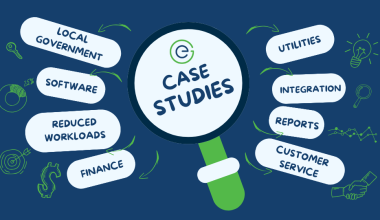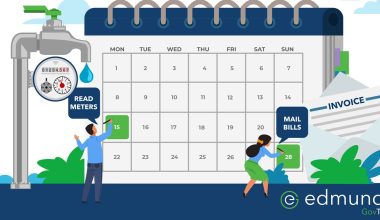A common reason many utilities offer for why they charge a convenience fee for accepting credit card payments is, “It’s not fair for all of our customers to pay for a few who want to use a credit card”.
But is that really the case? Certainly, cash and check payments don’t incur a fee from a merchant processor, but are they really “free” as these utilities seem to think?
Let’s take a look…
Cash payments
Cash payments require entering the payment, printing a receipt, and making change at the time of the payment.
Then, at the end of the business day, someone has to count and balance the cash drawer, and prepare a deposit. Someone then has to take this deposit to the bank. If, for some reason, the cash drawer doesn’t balance, the discrepancy must be researched, and that takes even more time.
Check payments
Check payments, if they are received in the mail, require opening the mail and entering the payment, unless you’re using a lockbox and there’s definitely a cost for that. Check payments at the counter or drive-up window must be entered and a receipt printed. Checks must also be balanced and a deposit made, whether that means scanning them for remote deposit capture or running an adding machine tape or listing them on the deposit slip, all of which take time.
None of this takes into account if the check bounces! If a check is returned for insufficient funds, you might have to research which account was paid by the check. Then you have to contact the customer and add the bad check amount and (hopefully) a returned check fee back to the account.
Credit card payments
Credit card payments, on the other hand, especially online and IVR payments, require minimal personal intervention compared to processing a cash or check payment.
If you have a fully integrated online bill pay or IVR system, the payments are immediately logged in your system and there is no need to import a file the next day. Even if your online bill pay system isn’t fully integrated, importing a file of credit card payments takes far less time than entering cash or check payments.
Balancing the day’s credit card payments is as simple as comparing the total in your system to the merchant processor’s website or the total from your third-party online bill pay provider.
And, of course, no bank deposit is required for credit card payments.
Some utilities don’t accept payments in person
I know of at least three utilities who, for various reasons, don’t accept cash or check payments in person. And I know of one other that accepts checks and credit cards in person, but no cash.
Admittedly, the three who accept no payments in person are all privately owned utilities. I completely understand the ramifications of a public utility not accepting payments in person.
However, this does underscore the fact that some utilities have acknowledged how costly accepting payments in person can be, and, consequently, they’ve opted not to.
How much does it really cost to process payments?
Obviously, there are costs associated with accepting cash and check payments, especially in person. But how much are these costs and can they be quantified?
This is where you can help!
I’m looking for a few utilities who are willing to invest the time and effort into logging the amount of time the aforementioned activities entail.
If you decide to participate, you will be provided a link to a Google spreadsheet where you can log the number of payments received each day and the amount of time required for each activity.


